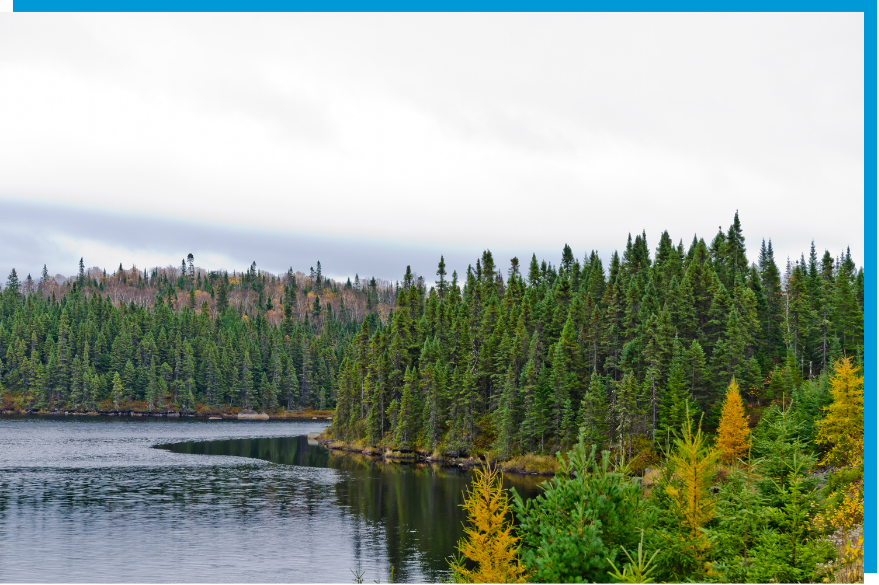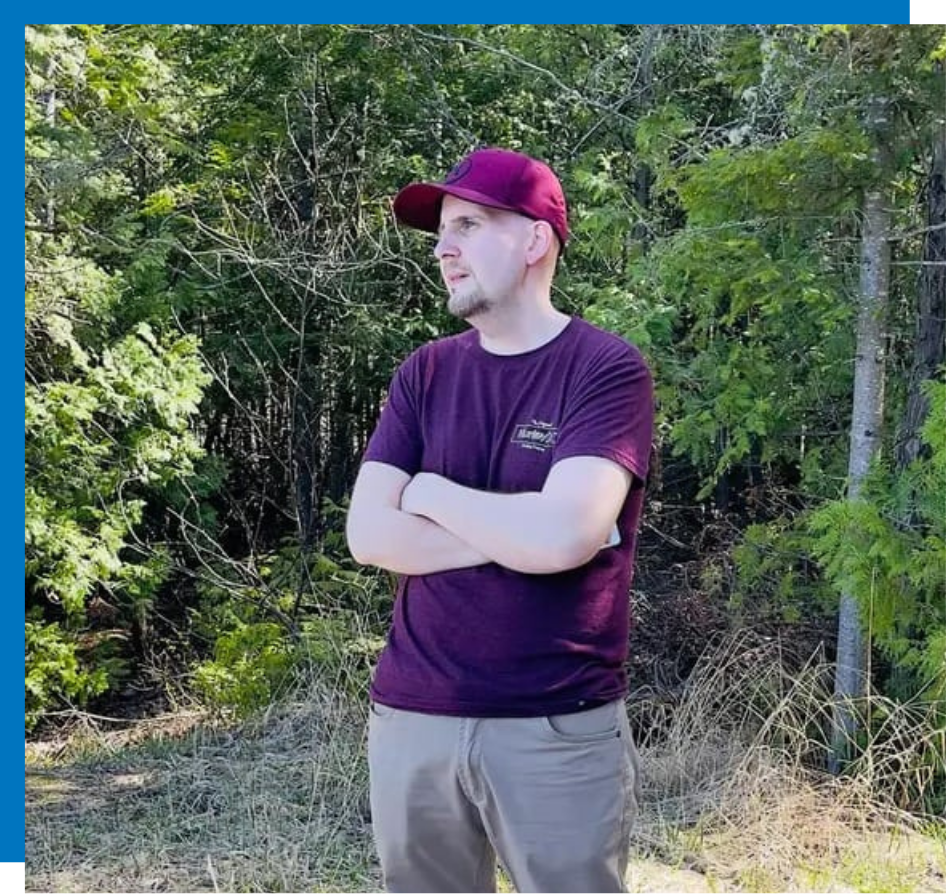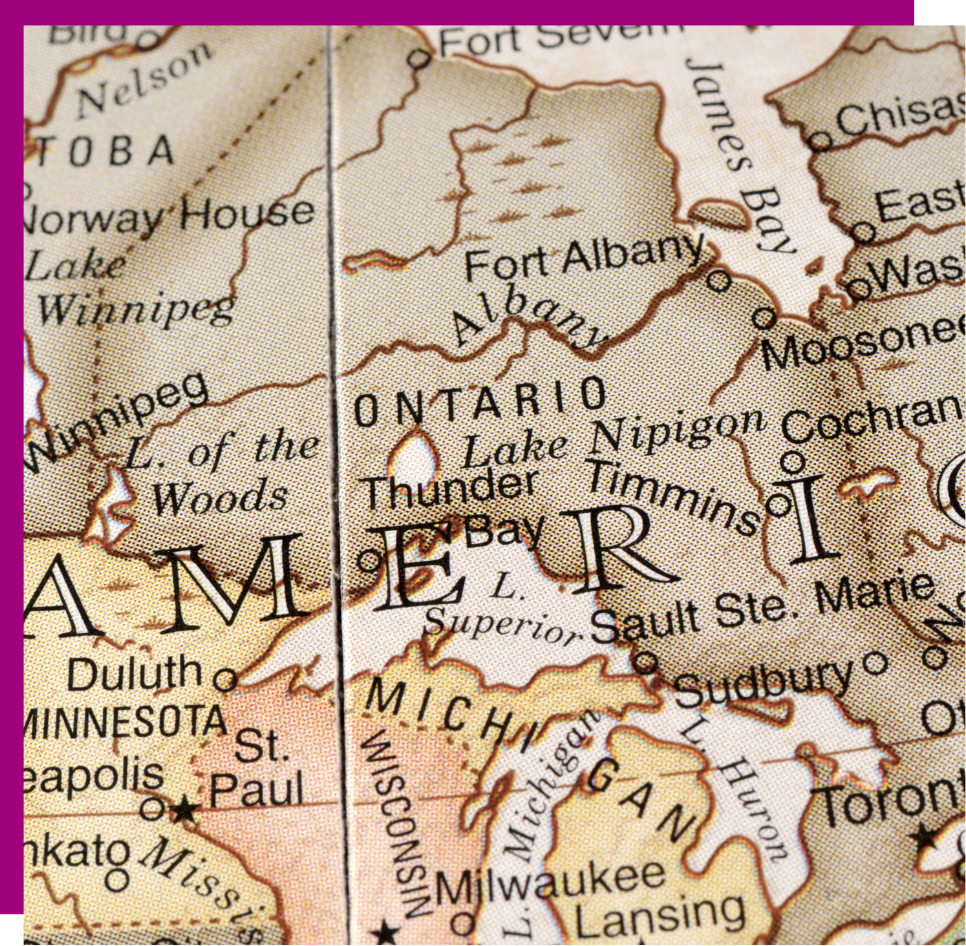Interviewer: Rachel Martin, POGO Counsellor
Interviewee: Josh McGonegal, PhD candidate, childhood cancer survivor
Written from the perspective of interviewer Rachel Martin
When I think of research, I think of numbers and long-winded articles written in a language that is difficult to understand. For Josh McGonegal, research has become something much more: a way to find meaning, connection with others, and hope for the future.
Josh’s life changed when he was diagnosed with cancer as a teenager, and it changed again when his family moved to the northern town of Elliot Lake. The move took him six hours away from his friends, community, and medical care. Josh shared that it was difficult to make friends while also navigating the effects of his treatment as an older teenager. Although he was no longer on active treatment, he described the additional stress of having to travel back south to attend his follow-up appointments.
Attending university gave him a way to get back to his home community, but it came with new challenges, including navigating which supports and accommodations he needed to be academically successful. Josh expressed gratitude for his School and Work Transitions Counsellor, who validated his experiences and helped guide him through the system. While in school, he volunteered with the Brain Tumour Foundation of Canada and joined a local support group. Eventually, he started leading some of these groups. It was here that a professional suggested he look into the field of social work.
Although research was not what he originally envisioned for his life, he found himself enjoying the mandatory research class in his third year of his undergraduate degree. He got connected with the Canadian Association of Psychosocial Oncology. Around that time, he also began to struggle with the demands of his school placement. Unfortunately, the workload couldn’t be reduced to accommodate his needs. But hope returned when a professor invited him to join a research project to complete his placement credit. Josh has been involved in research ever since, and he shared that it allowed him the flexibility to work at his own pace.
“Together is the only way to make it better.”
Fast forward several years: Josh is now back in Northern Ontario, pursuing his PhD at Laurentian University. Two years in, he’s currently recruiting participants for his study, which explores the follow-up care experiences and evolving sense of identity among adult survivors of childhood cancer living in the north. Through this work, he hopes to highlight not just the challenges of accessing medical care, cancer-specific programs, and peer support—but also the limited awareness many survivors have of these services.
A key goal of Josh’s research is to help healthcare providers better understand the realities of survivorship in Northern Ontario, where geography, travel distances, and infrastructure can have a major impact on care and quality of life. Ultimately, he hopes his findings will improve support for the next generation of survivors.
Because this is a qualitative study, Josh is collecting stories—not numbers. He emphasized that he isn’t just tracking how many follow-up appointments someone attends. What makes his research special is the way it focuses on the full person. Josh wants to understand people’s day-to-day experience of wellness—mental, social, and emotional—as it relates to survivorship in the north.

Josh noted that young adulthood is often viewed as a time of health and freedom. But his cancer diagnosis complicated this stage of life. He spent his early adulthood attending medical appointments and learning to accept the changes to his brain and body that treatment had brought. Like many survivors, Josh said he struggled with self-esteem and identity. Connecting with other survivors—people who “get it”—helped him feel less alone and more anchored in community. He cited the first POGO conference he attended, as well as the S2S group, as especially meaningful. He also spoke to the unique experience of being diagnosed as a child versus as an adult.
Now, Josh hopes his research can help extend that sense of connection to other survivors living in the north. Whether it’s connection to people or to services, he wants to understand how survivors are taking care of their whole selves in adulthood—and where the gaps might be. Josh wants people to know that every story matters. Even if your experience feels small, it’s still a piece of the larger puzzle he’s trying to complete. And if you’ve ever done a puzzle, you know how important every last piece is.
By participating in Josh’s research, you can help complete the picture of what life is like for adult survivors of childhood cancer in Northern Ontario—including their experiences with aftercare—and contribute to improving long-term supports for future survivors.
If you’re interested in participating and live in Northern Ontario, Josh encourages you to email him directly at jmcgonegal1@laurentian.ca. The study involves signing a consent form and completing a virtual interview, which takes about an hour. Josh is happy to make accommodations to help ensure the interview is accessible and successful. As a thank-you, participants will receive an Amazon gift card. And as with any study, you’re free to withdraw at any time.
Being an adult survivor of childhood cancer is a unique experience, and living in northern Ontario adds another layer to this. If you are eligible, please consider sharing your story with Josh so he can put together a picture of what aftercare looks like in this area.
As Josh states “Together is the only way to make it better.”

Counsellor, POGO Transitions Program

